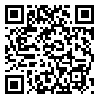Volume 19, Issue 5 (Nov-Dec 2011)
JSSU 2011, 19(5): 637-43 |
Back to browse issues page
Download citation:
BibTeX | RIS | EndNote | Medlars | ProCite | Reference Manager | RefWorks
Send citation to:



BibTeX | RIS | EndNote | Medlars | ProCite | Reference Manager | RefWorks
Send citation to:
Akhondi-Meybodi, Rabei, Salehi. Frequency of Celiac Disease in Irritable Bowel Syndrome Patients with Predominant Diarrhea Referred to Gastroenterology Clinics in Yazd, Iran . JSSU 2011; 19 (5) :637-43
URL: http://jssu.ssu.ac.ir/article-1-1739-en.html
URL: http://jssu.ssu.ac.ir/article-1-1739-en.html
Abstract: (10455 Views)
Introduction: Irritable Bowel Syndrome(IBS) is a common clinical syndrome that presents with abdominal pain, diarrhea and constipation, and flatulence which may be intermittent. Also celiac disease, an enteropathy due to gluten sensitivity, presents with diarrhea resulting from mal-absorption, which should be considered as a differential diagnosis of IBS. If celiac is diagnosed in a patient suspicious to IBS, the treatment method will be changed completely. This study was designed to evaluate celiac disease in IBS patients.
Methods: A cross-sectional study was conducted on 125 patients 15-50 years old suffering from IBS with diarrhea- predominant clinical picture, who were referred to Yazd gastroenterology clinics. The study data including age, gender and results of anti TTG measurement were collected and analyzed by SPSS 13. Duodenal biopsy was performed in patients that were positive for anti TTG for confirmation of diagnosis.
Results: 125 patients suffering from IBS with diarrhea- predominant clinical picture entered the study. Their mean age was 29.85±9.22 years. 74 subjects (59.2%) were males and 51 (40.8%) were females. Four patients showed positive anti TTG (3 males and 1 female). Duodenal biopsy was performed and diagnosis of celiac disease was confirmed in all four patients (3 with March II and with March I grade). Totally the frequency of celiac disease was 3.2% in this study. There was no significant relationship between age, gender and anti TTG results, which can be explained by small sample size.
Conclusion: According to the results of the study and the frequency of celiac, it is not an uncommon and rare disease, so it should be considered as one of the differential diagnoses of IBS.
Send email to the article author
| Rights and permissions | |
 |
This work is licensed under a Creative Commons Attribution-NonCommercial 4.0 International License. |





